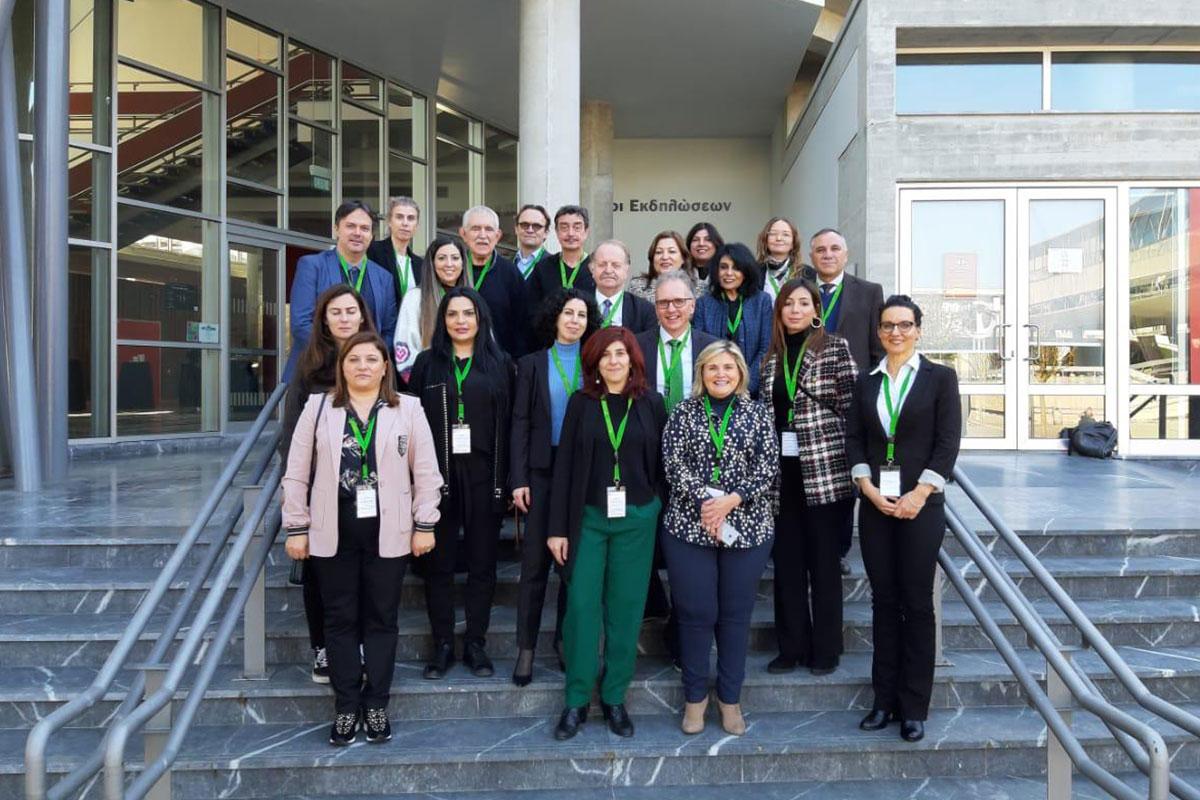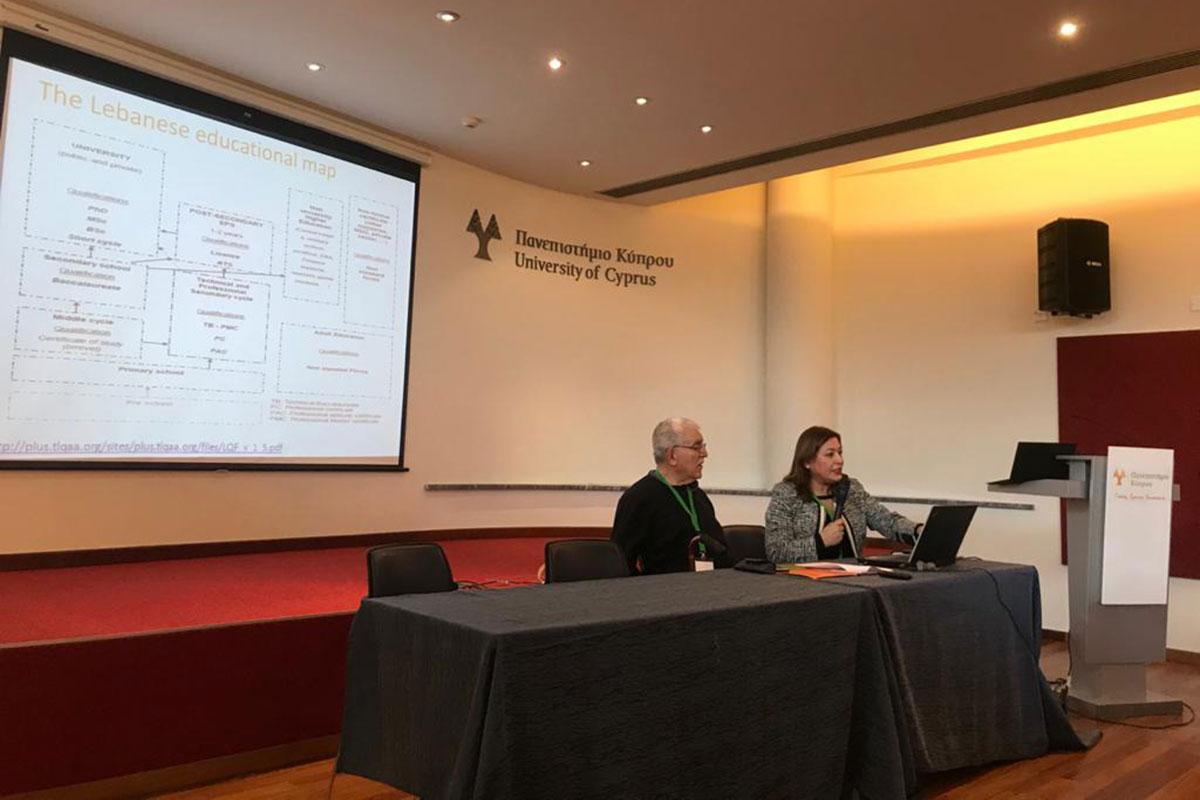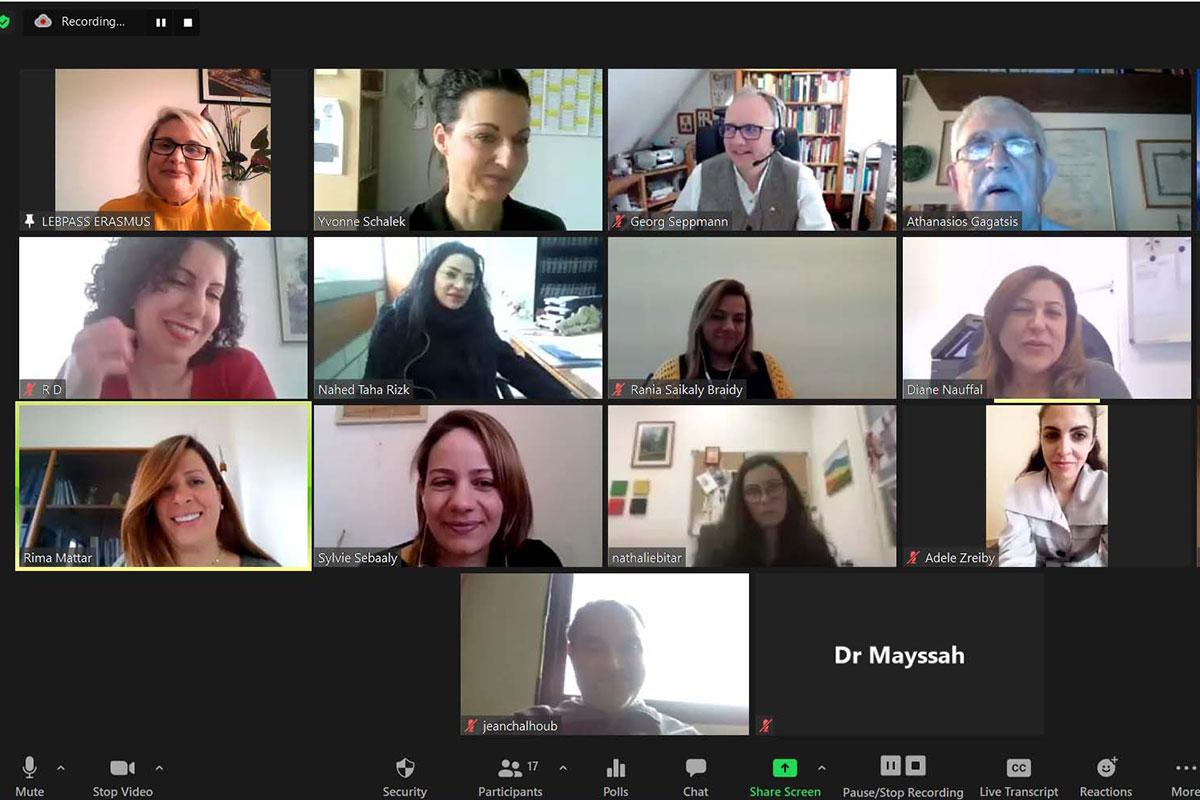LAU Collaborates in Project to Launch Diploma Supplement
LEBPASS document set to facilitate the application process to universities and the workplace for students.
LAU is a main partner in a nationwide project, LEBPASS, that aims to enhance students’ mobility by making their academic qualifications clearly and easily understood nationally and internationally, and in the process promote the higher education system in Lebanon.
The project, co-funded by the Erasmus+ Programme of the European Union, involves a consortium of universities charged with creating a LEBPASS platform and implementing a standardized diploma supplement – a comprehensive description of the nature, level, content and status of studies completed by the student. This will ensure alignment between institutions of higher learning in Lebanon and academic recognition and transparency, among others.
Built on the idea of the Europass, the Lebanese diploma supplement is akin to a passport containing exhaustive information required by a future employer or higher education establishment about the applicant’s academic experience.
It includes, in addition to the nature of the degree, the applicant’s academic qualifications such as minor or concentration, language of instruction, duration of program, and a breakdown of credits for major courses, electives and Liberal Arts Curriculum. The document will also list internships, workshops, study abroad experience, and other professional development activities that the student has completed.
LEBPASS is being conducted in collaboration with the Lebanese Ministry of Education and Higher Education (MEHE), the Holy Spirit University of Kaslik (USEK), the Lebanese University (LU), Beirut Arab University (BAU), the Lebanese Canadian University (LCU), and a host of European partners. The Provost’s Office and Assistant to the President for Institutional Research & Assessment Diane Nauffal drive the project at LAU.
Along with the Friedrich-Alexander-Universität Erlangen-Nürnberg in Germany, LAU has already tested the ground across Lebanon and with different stakeholders in the sector to assess the need for a LEBPASS. A second phase involved developing a template of the degree supplement in collaboration with higher education institutions in Cyprus.
LAU is in the process of implementing the template, which will be piloted at the School of Pharmacy, with the ultimate objective of developing a diploma supplement for all 2021 graduates of the selected programs.
“Usually students go to the greatest lengths to get a transcript, then a description of the study program and the courses, in addition to other requirements by the institution or employer,” Dr. Nauffal said. “With the LEBPASS the information is all there in one form.”
One of the main purposes of the diploma supplement is to facilitate student mobility, which would impact employability and access to international and national higher education establishments.
“It aims at facilitating degree equivalence procedures both nationally and internationally, particularly with European institutions and employers,” said Assistant Provost for Academic Affairs Rula Diab. “In addition, it will promote transparency and flexibility.”
To ensure students meet the need for cutting-edge curricula in a global digitized world, LAU is taking an active part in conversations with MEHE with regard to online and hybrid learning at the national level.
Another notable advantage of the diploma supplement is that it will list learning outcomes, identifying the knowledge, skills and values that students will be able to demonstrate upon successful completion of the program. It also indicates whether the program is accredited or has been peer reviewed, which signals to institutions of higher learning and employers that it has gone through rigorous and independent evaluation processes to earn the ‘accreditation’ stamp of approval, said Dr. Nauffal.
LAU has continuously positioned itself as a driver of public policy and initiatives that help to advance higher education in Lebanon.
“When we learn of an initiative that would add value to the sector and show that it is a sector of quality, we do our best to get involved and try to enlist the support of the ministry,” said Dr. Nauffal. “Through its participation in the LEBPASS project, LAU is making sure, first of all, that Lebanese institutions are providing quality education, and that this will help students either in their further studies or in employment.”
The ministry’s endorsement of LEBPASS, she added, paves the way for policy to be accepted by other higher education institutions and not just by those involved in the project.
“We are helping the ministry develop its own institutions’ capacity to be able to get this working,” said Dr. Nauffal.


